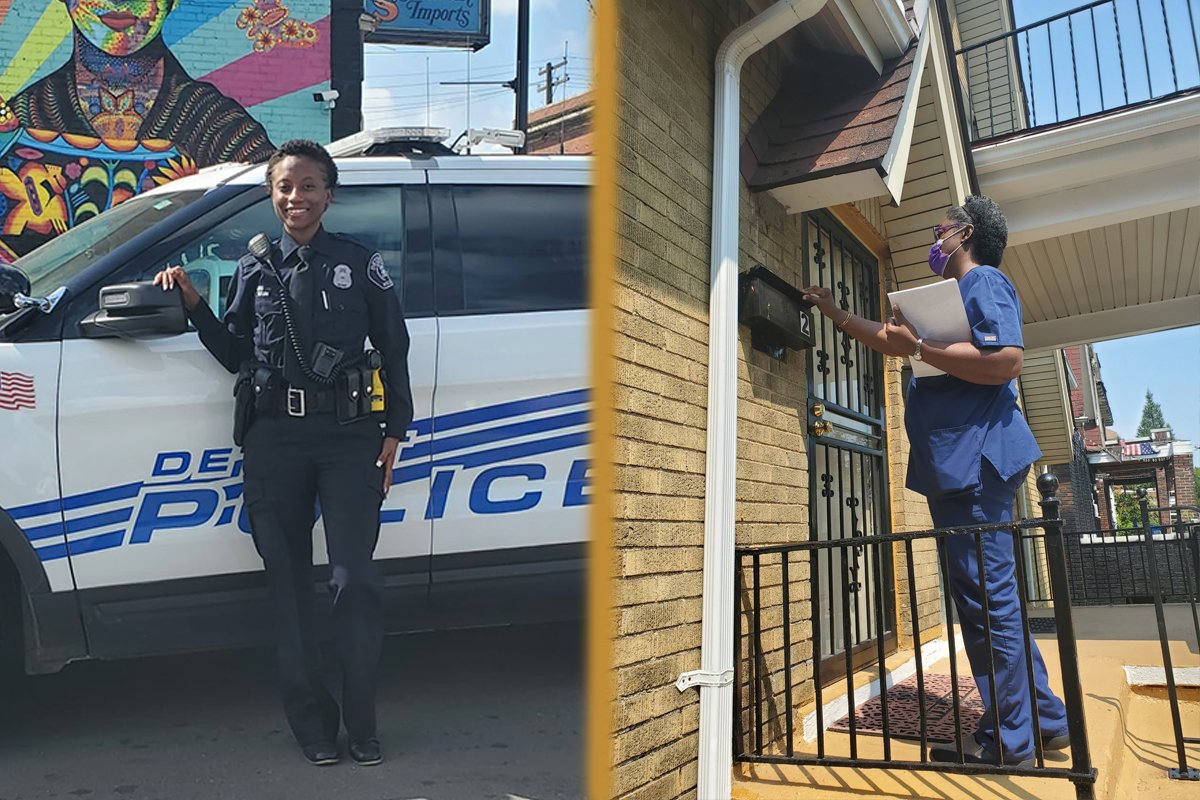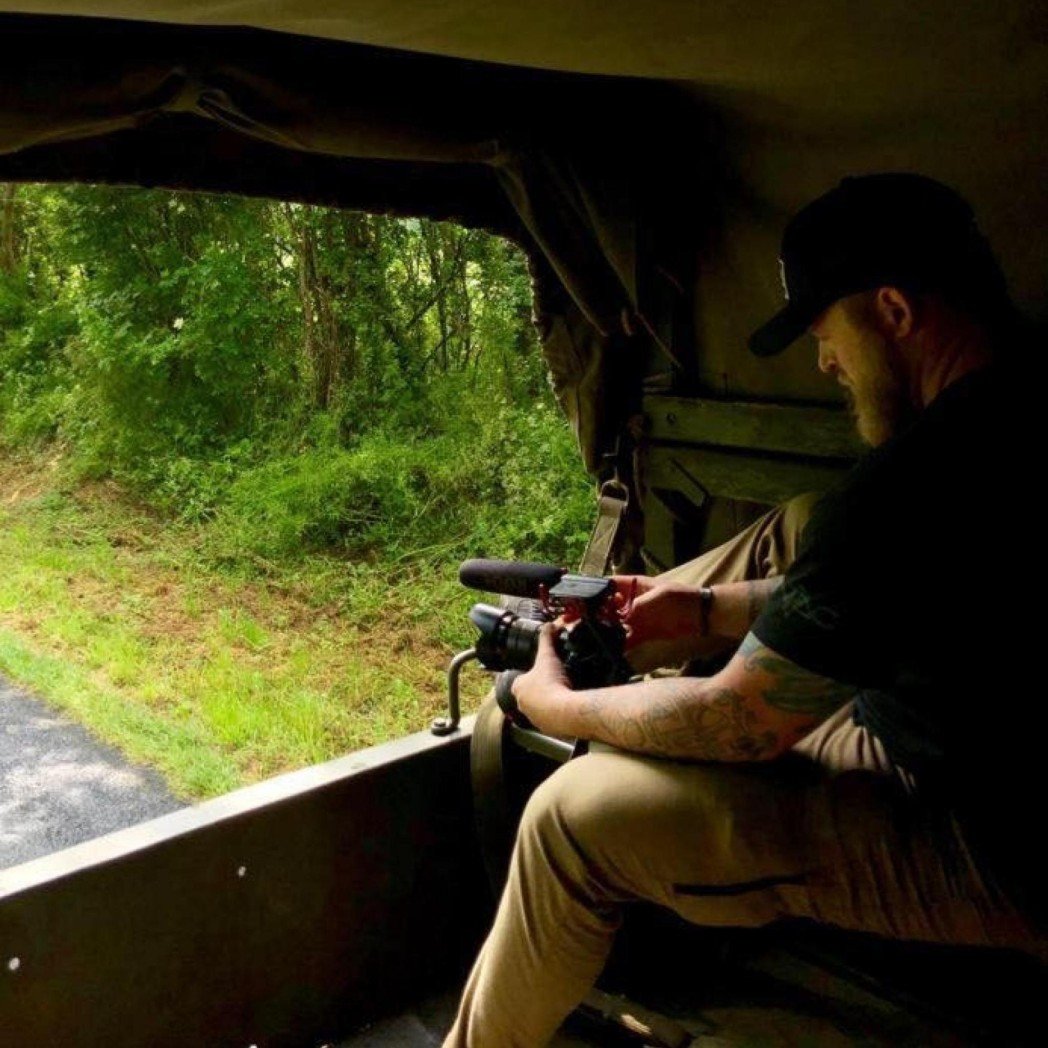
Whether it’s investigating crimes or sending a mental health specialist to follow up with someone suffering from mental illness, the Detroit Police Department is working hard to help members of its community and keep them safe. Photos courtesy of the Detroit Police Department/Facebook. Composite image by Joshua Skovlund/Coffee or Die Magazine.
The Detroit Police Department is expanding a program of mental health crisis intervention teams after seeing success in the pilot program it launched in December. DPD Chief James E. White announced the decision to expand the program throughout the whole department, possibly providing a solution to the high risk associated with police who encounter people suffering from mental health diseases.
People suffering from serious, untreated mental illnesses are 16 times more likely than other civilians to be fatally shot during encounters with police, according to a 2015 study by the Treatment Advocacy Center.
White, who was formerly the head of the Michigan Department of Civil Rights, said in a press conference that mental health crises in Detroit can be a burden to officers.
“[DPD] responds to approximately 4,000 [calls] per year for people dealing with some form of mental health crisis. That’s about 21 runs on average per day,” White said. “Sadly, in the United States, there are 30 million people in some form of a mental health crisis. We cannot arrest our way through mental illness.”
White feels that those who are already victims of undiagnosed and untreated mental health diseases are just re-victimized when they are arrested and charged for the crimes they commit.
“They’re unable to really process or comprehend a lot of what’s happening to them,” White said. “They act out in many different ways. And usually, that results in some police intervention. This is a disease that victimizes our community, plain and simple.
“We see it day in and day out, we see it in impulsive decision making, we see people making long-term decisions for short-term problems — people making decisions to bring a gun to resolve relatively simple conflicts.”
The program has put 98 members of the department, including both dispatchers and police officers, through crisis intervention training, which designates them as crisis intervention team (CIT) members. This training is meant to better equip officers to de-escalate encounters with people in mental health crises.
The program itself has three parts. The first is the crisis intervention team, which has a dedicated squad car staffed with a behavioral health specialist and two CIT officers. This team only responds to nonviolent mental-illness-related 911 calls.
Another segment of the program is the 911 integrated response, in which a behavioral health specialist working at the 911 dispatch center advises officers and talks with callers who may be facing a mental health crisis.
The third part of the program is the Detroit homeless outreach team. Clinicians contracted through the program seek out homeless people and connect them with resources to get them back on their feet. This section of the program was spurred by research from the National Alliance on Mental Illness indicating that 21% of people experiencing homelessness have been diagnosed with a behavioral health issue.
Read Next:

Joshua Skovlund is a former staff writer for Coffee or Die. He covered the 75th anniversary of D-Day in France, multinational military exercises in Germany, and civil unrest during the 2020 riots in Minneapolis. Born and raised in small-town South Dakota, he grew up playing football and soccer before serving as a forward observer in the US Army. After leaving the service, he worked as a personal trainer while earning his paramedic license. After five years as in paramedicine, he transitioned to a career in multimedia journalism. Joshua is married with two children.
BRCC and Bad Moon Print Press team up for an exclusive, limited-edition T-shirt design!
BRCC partners with Team Room Design for an exclusive T-shirt release!
Thirty Seconds Out has partnered with BRCC for an exclusive shirt design invoking the God of Winter.
Lucas O'Hara of Grizzly Forge has teamed up with BRCC for a badass, exclusive Shirt Club T-shirt design featuring his most popular knife and tiomahawk.
Coffee or Die sits down with one of the graphic designers behind Black Rifle Coffee's signature look and vibe.
Biden will award the Medal of Honor to a Vietnam War Army helicopter pilot who risked his life to save a reconnaissance team from almost certain death.
Ever wonder how much Jack Mandaville would f*ck sh*t up if he went back in time? The American Revolution didn't even see him coming.
A nearly 200-year-old West Point time capsule that at first appeared to yield little more than dust contains hidden treasure, the US Military Academy said.












